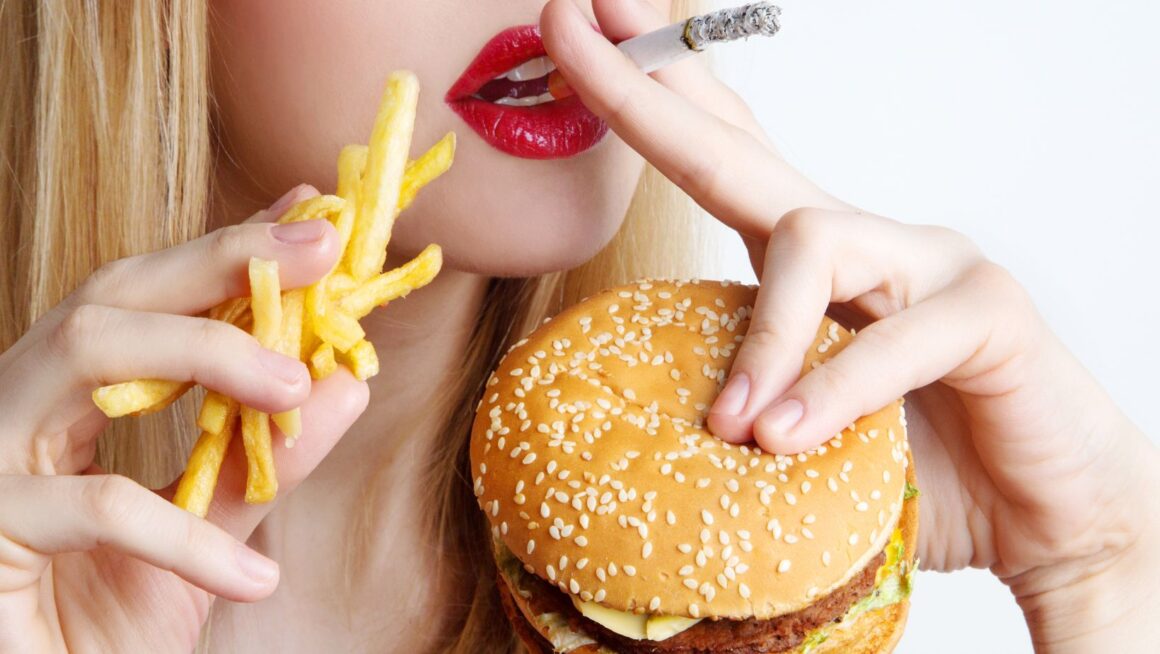Everyone has a vice or two, and for most people, they don’t let it go overboard. But what if our little indulgences are doing more harm than we think? Sure, the occasional binge drinking might seem non-addictive until you wake up in the bushes of a strange neighborhood. Or, skipping breakfast might take you down a pound or two until you develop stomach ulcers.
The point is you can’t really preempt the degree of damage your bad habits may cause to you until it’s too late. But what if we help paint a picture? In this article, we’ll be highlighting some of the ways that the most common bad habits can affect one’s health just to motivate you to quit sooner.
Let’s begin.
Nail Biting: The Gateway Gnaw
Nail biting isn’t just a quick way to ruin a manicure; it’s also a gateway to unwanted germs. When we chew our nails, we transfer bacteria from our fingertips directly into our mouths, setting the stage for potential infections. On the scarier side, nail biting can transfer bacteria buried under the surface of your nail to your mouth. Pinworms, when ingested, can create severe stomach problems. Furthermore, consistently biting your nails can damage the nail beds and even lead to dental issues. So, the time you find yourself feeling like nibbling on your nail, reach for a stress ball instead.
Skipping Breakfast: The Fast Track to Snack City
The old saying goes, “Breakfast is the most important meal of the day,” and it’s not just an old wives’ tale. Skipping breakfast can lead to increased hunger later, often resulting in overindulgence at snack time. To keep your energy levels steady and your stomach satisfied, try starting your day with a balanced meal that includes protein, fat, and carbohydrates.
Smoking: The Breath Buster
Smoking is notorious for its severe health risks, including heart disease, lung cancer, and respiratory problems. If quitting cold turkey seems daunting, consider transitioning to alternatives like vape juice. These options can provide a similar sensation to smoking but with potentially fewer harmful effects. Remember, the ultimate goal is to quit nicotine altogether, but taking a step down might be a good start.
Screen Time Before Bedtime: Lights Out, Brain On
In this era where you can stream anything from any smart mobile device, winding down means turning up the brightness on our devices.

However, this exposure to blue light can disrupt our natural sleep rhythms, making it harder to fall asleep and stay asleep. So, for a better night’s rest, consider reading a book or practicing meditation for about 30 minutes before bed instead of screen time.
Not Drinking Enough Water: The Dry Truth
Hydration is key to maintaining almost every system in our body, yet many of us don’t drink enough water throughout the day. Dehydration can lead to fatigue and headaches and even affect one’s cognitive abilities. Ideally, you should aim for about eight glasses a day, but realistically, we can settle for 5. Remember, if you’re active or it’s a hot day, you might need more.
The Snack Sneak: Mindless Munching
We’ve all been there. Standing over an open fridge, eating straight from a package, barely registering what we’re consuming. This mindless eating can add up in terms of unnecessary calories and poor nutrition. So, try to be more mindful about your snacking by keeping healthy options within reach and sitting down to enjoy them without distractions.
Sitting All Day: The Sedentary Scourge
Our bodies aren’t built for sitting all day, yet many of us are glued to our desks for hours on end. Long periods of sitting can lead to a slew of health issues, including poor posture, back pain, and an increased risk of heart disease. Make an effort to stand or walk for a few minutes every hour to keep your body active and engaged.
Procrastination: The Stress Multiplier
Procrastination might not seem like a health risk, but it often leads to unnecessary stress and anxiety as deadlines approach.

To prevent being overwhelmed, you should break tasks into smaller, manageable pieces and set yourself mini-deadlines to avoid last-minute panic.
Conclusion
While these habits might seem benign, they can have long-term impacts on our health. The good news? It’s never too late to break a bad habit and make a positive change. So, why not start today? Your body (and mind) will thank you!



